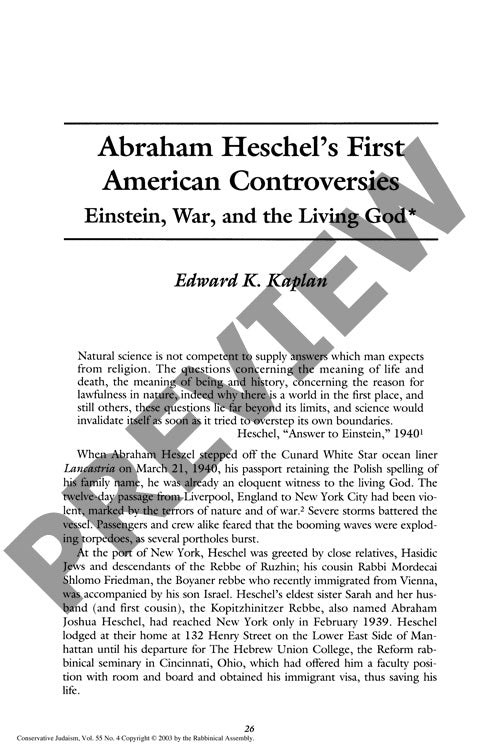Abraham Heschels First American Controve
Couldn't load pickup availability
Abraham Joshua Heschel's first major theological controversy in America - a public critique of Einstein's religious naturalism in 1940 - marked the emergence of a distinctive Jewish theological voice that would profoundly shape modern religious thought. As a refugee scholar during World War II, Heschel strategically positioned himself within American Jewish intellectual circles while crafting bold theological responses to the catastrophic events unfolding in Europe. Through analysis of archival correspondence, newspaper articles, and published works, including his seminal essay "The Meaning of This War" (1943), a complex portrait emerges of Heschel navigating between Reform and Conservative Jewish institutions while maintaining vital connections to Hasidic tradition and European Jewish scholarship through organizations like YIVO. His relationships with influential figures like Louis Finkelstein, Albert Einstein, and Mordecai Kaplan reveal how he balanced institutional politics with theological conviction, defending belief in a personal God against scientific materialism. The biographical and intellectual historical analysis demonstrates how Heschel's wartime theological controversies, deeply informed by his anguish over the Holocaust and his position as a refugee intellectual, established the foundation for his later influential works on Jewish theology and social activism. His formative American years (1940-1945) exemplify the intersection of personal trauma, institutional dynamics, and theological innovation in shaping one of modern Judaism's most significant thinkers.

More Information
-
Physical Description
-
Publication Information
Published 2003
ISBN
-
Publication Credits
Edward Kaplan

